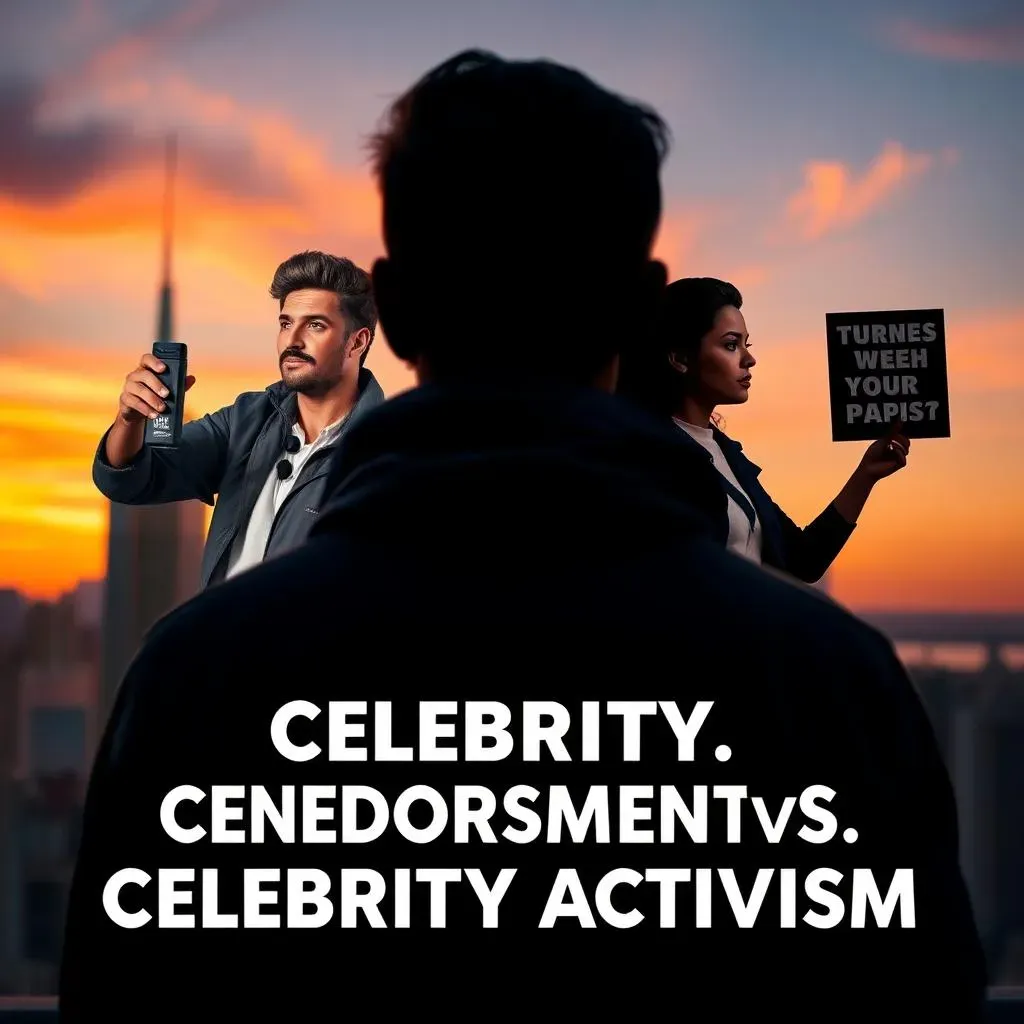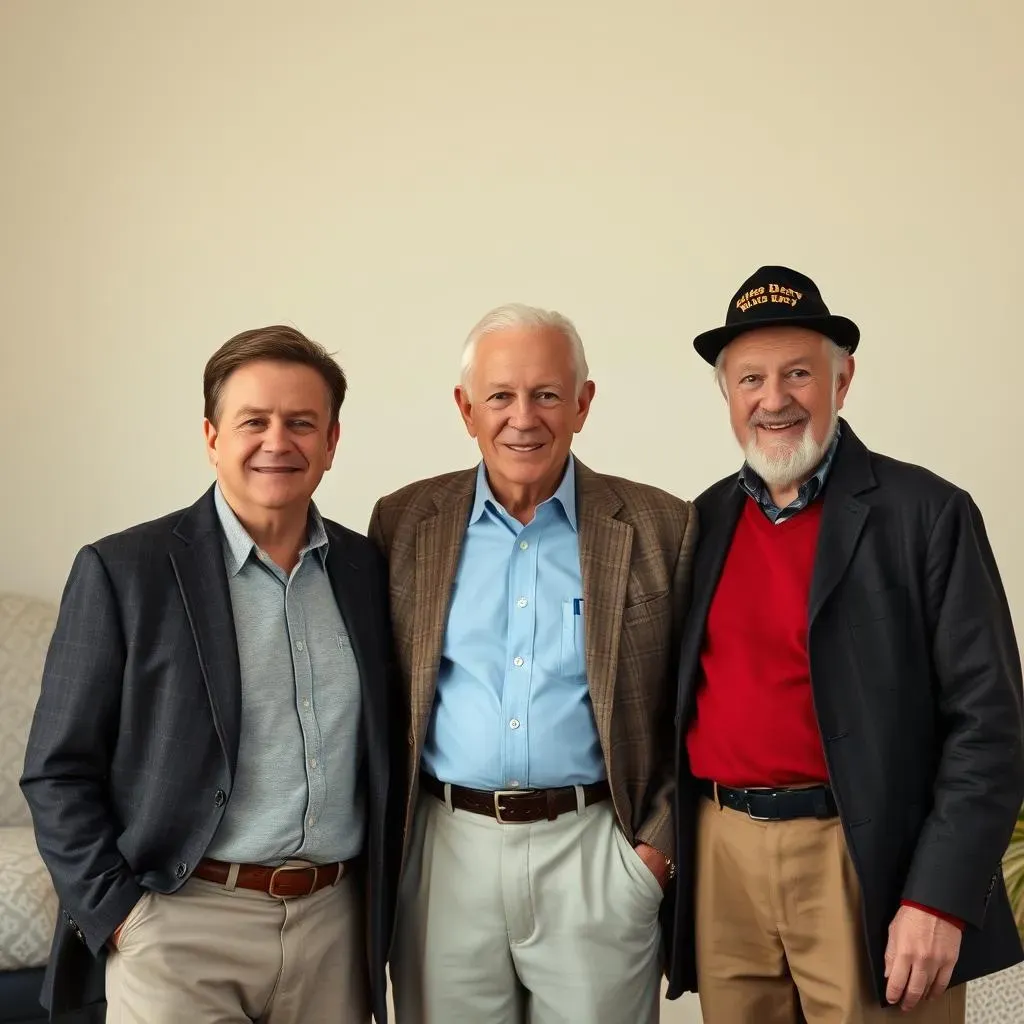Table of Contents
Ever wondered how famous faces can make a real difference? We're not just talking about ads; we're talking about something way more powerful: celebrity activism for disease research fundraising. It's not the same as a celebrity just holding a product; it's when they get passionate about a cause and use their influence to help. Think of it as superheroes using their powers for good, but instead of capes, they have a platform. This article will show you how celebrity activism differs from endorsements, what makes it truly effective, and we'll shine a light on some real-life examples of celebrities who are knocking it out of the park when it comes to disease research fundraising. We'll explore how their connection to a cause, long-term dedication, and genuine care is what makes the difference. Get ready to see how these stars are not just shining on the red carpet, but also in the fight against diseases. We will look at how celebrity disease research fundraising can make real impact. Let's jump in!
Celebrity Endorsement Vs. Celebrity Activism

Celebrity Endorsement Vs. Celebrity Activism
The Shiny World of Endorsements
Okay, so you've seen it a million times: a famous person smiling next to a product, right? That's a celebrity endorsement. It's basically a paid advertisement. They're using their fame to say, "Hey, this thing is cool, you should buy it!" It's like when a basketball star wears a certain brand of shoes; they're not necessarily passionate about the shoe's design, but they're getting paid to show it off. This is a business deal, plain and simple. It's all about selling stuff, and there's nothing wrong with that, but it's not what we're focusing on here.
Think about it: a pop star promoting a new soda. They might not even drink that stuff in real life! It’s a transaction, and their job is to make you think that if you buy the soda, you might feel a little bit like them. It's all very surface level. Now, celebrity activism? That's a whole different ballgame.
Feature | Celebrity Endorsement | Celebrity Activism |
|---|---|---|
Primary Goal | Promote a product or service | Advocate for a cause |
Motivation | Financial compensation | Genuine concern for an issue |
Relationship to Cause/Product | Often superficial | Deeply personal and committed |
Impact | Boost sales, brand awareness | Raise awareness, drive change |
Activism: More Than Just a Photo Op
Now, let's talk about celebrity activism. This is where a celebrity is actually involved and invested in a cause. It's not just about flashing a smile; it's about using their influence to make real change. It's like when an actor starts a foundation to help kids with cancer because they have a personal connection to the disease. They're not getting paid to care; they care because they care. That's the big difference. They use their platform to raise awareness, funds, and support for something they truly believe in.
For example, an athlete might campaign for clean water access in developing countries, or a musician might fight for LGBTQ+ rights because they believe in equality. It's about using their voice to amplify the voices of those who need it most. They're not just selling something; they're fighting for something. This kind of commitment is what makes celebrity activism a real force for good.
Three Keys to Successful Celebrity Disease Research Fundraising

Three Keys to Successful Celebrity Disease Research Fundraising
The Authentic Connection
Okay, so a celebrity wants to help with disease research fundraising, that's great, but it's not enough just to show up. The first key is having a real, authentic connection with the cause. It can't just be something they read about in a script, it needs to hit home. It's like if a musician writes a song about heartbreak, you can tell if they've actually been through it or if they're just singing words someone else wrote. The same goes for activism. If a celebrity has seen a loved one struggle with a disease, or if they've gone through it themselves, their passion will come through. People can spot a fake from a mile away, and if it's not authentic, it just won't work. This genuine connection is what makes people stop and listen.
It's about a real story. For example, an actor who lost a parent to cancer might be more effective at raising funds for cancer research than someone who simply wants to appear charitable. Their personal experience gives them a deeper understanding and a stronger voice. This isn't just about having a famous name; it's about having a real heart for the cause. This connection is the first step to making a real impact.
Long-Term Commitment
The second key to successful celebrity disease research fundraising is commitment. It's not enough to just show up for one event, take a few photos, and then disappear. It has to be a long-term relationship. Think of it like a marathon, not a sprint. True change takes time and effort. If a celebrity is serious about making a difference, they need to be in it for the long haul. This means consistently raising awareness, actively participating in events, and using their influence to keep the issue in the spotlight. People need to see that they're not just doing this for the headlines; they're doing it because they care.
It's like planting a tree. You don't just put the seed in the ground and walk away; you need to water it, nurture it, and protect it so it can grow. Similarly, celebrities need to be consistently involved in the cause to see the impact they want to make. They need to be more than just a spokesperson, they need to be an advocate. This persistent dedication is what builds trust and encourages others to join the cause.
Key | Description | Why it Matters |
|---|---|---|
Authentic Connection | Genuine personal link to the cause | Builds trust, resonates with audience |
Long-Term Commitment | Consistent involvement over time | Drives sustained action, demonstrates dedication |
Genuine Interest | Deep understanding and passion for the research | Provides informed advocacy, inspires action |
Genuine Interest
Finally, the third key is a genuine interest in the actual research. It's not enough to just say "I support finding a cure"; a celebrity needs to understand the science behind it. It's like a chef who doesn't just cook, but also knows the ingredients and the recipes. A celebrity should be able to talk about the research, the challenges, and the progress being made. This shows that they're not just lending their name to a cause; they're genuinely invested in finding solutions. It makes their advocacy more credible and their fundraising efforts more impactful.
When a celebrity is genuinely interested, it shows in their conversations, their social media posts, and their actions. They're not just reading from a script, they're speaking from the heart and from a place of knowledge. They can explain why this research is so important and how it can save lives. This kind of informed advocacy is what can truly inspire people to donate and get involved. It's not just about raising money, it's about making a difference. The celebrity should be able to tell you about the biomarker discovered for Parkinson's by The Michael J. Fox Foundation and why it's important. That’s how you know they really care about the research.
“It's not enough to have a big name; you need a big heart and a real understanding of the issue you’re supporting.”
Spotlight on Three Celebrity Activists in Disease Research Fundraising

Spotlight on Three Celebrity Activists in Disease Research Fundraising
Alright, let's get to the good stuff, the real heroes in this story: the celebrities who aren't just lending their names but are truly making a difference in disease research fundraising. We're talking about folks who embody that authentic connection, long-term commitment, and genuine interest we just talked about. First up, we have Michael J. Fox, whose name is basically synonymous with Parkinson's research. Then there's Jimmy Carter, who, even in his final days, has brought a ton of attention to end-of-life care. And finally, we've got the enduring legacy of Lou Gehrig, which continues to fuel the fight against ALS. These aren't just famous people; they're powerful advocates who are changing the game. Let's see how.
Michael J. Fox: The Parkinson's Champion
Michael J. Fox is the poster child for celebrity activism done right. Diagnosed with Parkinson's disease at a young age, he didn't just sit back and accept it. Instead, he founded the Michael J. Fox Foundation, which has raised over $1.75 billion for Parkinson's research. That's billion with a B! His foundation isn't just about raising money; it's about driving research and finding a cure. They've even discovered a biomarker for Parkinson's, which is a huge step forward. What makes Fox so effective? It's his raw honesty, unwavering dedication, and deep understanding of the science behind the disease. He’s not just a celebrity; he’s a leader in the fight against Parkinson’s.
His approach is not just about throwing money at the problem; it’s about strategic investment in research that has the potential to make a real difference. He's not afraid to talk about the challenges of living with Parkinson's, and that vulnerability is what makes him so relatable and trustworthy. He’s a great example of someone who found a way to turn a personal battle into a movement for change. He's not just raising awareness; he's raising hope.
Activist | Cause | Impact |
|---|---|---|
Michael J. Fox | Parkinson's Disease | Raised over $1.75 billion, discovered a biomarker |
Jimmy Carter | End-of-Life Care | Raised awareness about hospice, family involvement |
Lou Gehrig | ALS (Lou Gehrig's Disease) | Legacy continues to drive awareness and research |
Jimmy Carter: A Lesson in Grace and End-of-Life Care
Next up is Jimmy Carter, who, while not focused on a specific disease research, has shown us all the importance of end-of-life care. His decision to enter hospice care brought national attention to the topic, highlighting the need for compassionate and family-involved care during the final stages of life. It wasn't a flashy campaign; it was a quiet, personal decision that sparked a vital conversation. Carter’s actions have taught us that even in the face of mortality, there is an opportunity to educate and raise awareness. He has also shown the importance of accepting help and leaning on family during difficult times. His legacy will not only be about his presidency, but also about his final act of grace and advocacy.
It’s a reminder that healthcare isn't just about curing diseases; it's about providing comfort and support through the entire journey. Carter’s decision has encouraged many families to consider hospice care as a dignified and caring option. He has shown that you can still make an impact even when you're not actively fundraising, that just by sharing your story, you can inspire change. It’s a testament to how powerful authenticity can be.
Lou Gehrig: The Enduring Legacy of ALS Awareness
Finally, let’s talk about Lou Gehrig. Though he passed away many years ago, his legacy continues to fuel the fight against ALS, also known as Lou Gehrig's disease. Major League Baseball commemorates Lou Gehrig Day on June 2nd, a day dedicated to raising awareness and funds for ALS research. Gehrig's story is a powerful reminder of the devastating impact of this disease, and it's a call to action for everyone to support research efforts. He's a symbol of courage and resilience, and his name is forever linked to the fight against ALS. His memory continues to inspire new generations to take up the cause, and his name is a call to action.
His story shows that even after a person is gone, their impact can still be felt. It’s about the power of remembrance and the importance of keeping the fight alive. The ongoing efforts to find a cure for ALS are a direct result of Gehrig’s legacy. It's a great example of how a personal tragedy can become a catalyst for change. He’s a reminder that we should keep pushing until we have a cure for ALS and all other diseases that affect millions of people around the world.
“Celebrity activism is not about being perfect; it's about being passionate and using your platform to make a difference.”